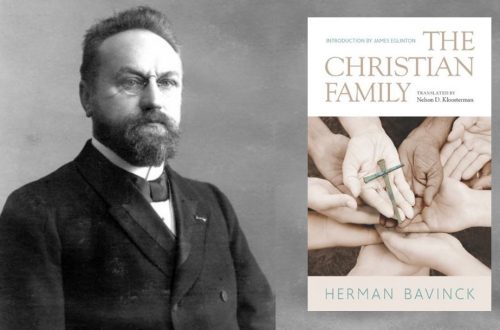 Sheri Klouda (an alumna of Criswell College) and Ben Cole (Southern Baptist gadfly) contribute a pair of articles in today’s Fort Worth Star-Telegram. Both Op-Ed’s appear under the heading “To teach or to exercise authority over a man,” a quotation from 1 Timothy 2:12.
Sheri Klouda (an alumna of Criswell College) and Ben Cole (Southern Baptist gadfly) contribute a pair of articles in today’s Fort Worth Star-Telegram. Both Op-Ed’s appear under the heading “To teach or to exercise authority over a man,” a quotation from 1 Timothy 2:12.
Both Klouda and Cole favor the position that women should be able to teach men in the seminary classroom. Interestingly, neither of them justifies their position by explaining their view of 1 Timothy 2:12. They simply assert that this controversial text does not apply to seminaries. Their arguments might have been more compelling had they rooted their protests in an interpretation of the biblical text quoted in the headline. Needless to say, both of these articles leave much to be desired.
“Southwestern scholar was badly served” – Ben Cole
“‘Tis a puzzlement” – Sheri Klouda




11 Comments
Matt Stokes
Cole’s remark about the SBC taking 150 years to apologize for slavery is a really cheap shot. He should know better.
Mike Bird
Denny,
I thought Sheri was remarkably restrained in her article. She is sad and confused not bitter and twisted. She does not lash out in anger as someone in her position might be expected to. By the way, this is also why I no longer identify myself as a complementarian and why I have pledged my support to Wade Burleson to assist in the cause of evangelical renewal in the SBC over and against the tide of neo-fundamentalism that is determined to purify the denomination from people like Sheri. But you are right in one sense, both articles leave much to be desired. In my case, I desire to see an apology made to Sheri. Blessings!
Benjamin S. Cole
Dear Denny:
Surely you know that Op-Eds are restricted in word count. I was given 740 words.
Surely you also know that digests and expositions of biblical texts, commentaries, and academic journal-style articles are not printed in the local paper. The readership is different. The audience determines the way the message is communicated.
Your critique falls flat if you fail to recognize that writing for the Star-Telegram is not like writing for the Criswell Theological Review.
Would you and the editors over at CTR like for me to write a paper for publication?
Let me know.
BSC
JB
I was reading about Korah (Israelite during the years in the desert). It seemed to him that it was reasonable that others than Aaron could play the Levitical role. Now God had said otherwise but Korah just couldn’t see the logic of that position.
OUTCOME: Korah no Morah!
We have our opinions but God seems to think it’s only His that matter. He’s seems to have been very clear about a lot of things. Often exhibits a stunning lack of tolerance actually. We ignore His written words to our detriment.
dennyrburk
Ben (#3),
Thanks for the inquiry about the Criswell Theological Review. All publication proposals should be submitted to the editor, Dr. Alan Streett (AStreett@CRISWELL.EDU).
Sincerely,
Denny Burk
D.R. Randle
First, I hope that Ben’s article is published somewhere so that he can defend his position Biblically on this issue, but it is my understanding that his position is in accordance with at least two other SBC institutions – NOBTS and SBTS. In fact I have heard at least one faculty member at SBTS express this same position.
Mike,
I am sorry that you feel you cannot identify yourself as a complimentarian, but I think that doing so should be a decision based upon correct exegesis and application of the Biblical text and not a possible misapplication and misuse of those same definitive texts. It is obvious that there are many in the SBC that are complimentarians and yet disagree with the SWBTS decision, including Wade Burleson and others who have been vocal on this issue. It would be tragic to see you throw the baby out with the bathwater and leave an otherwise Biblical position because of the possible sin of a few. Please reconsider your abandonment of complimentarianism or at the least seek to become thoroughly convinced by Biblical and historic standards, instead of letting an unfortunate set of circumstances dictate your position on the Biblical text and the historic teachings of the Church.
Mike Bird
D.R.
Who said I was abandoning the complementarian side? I no longer identify myself as a complementarian which is not the same thing. I’d come close to Craig Blomberg’s view of women-in-ministry. But due to an increasing number of episodes like this (not just Klouda too) I no longer wish to identify with the movement. I have had to change my views of women and ministry in recent years and had bow my knee to the biblical data. So it is still the Bible and not circumstances that drive my convictions.
Pingback:
D.R. Randle
Mike,
I am totally confused by your comment. Sorry, but not knowing anything more than what I gathered from your initial comment (which to me did sound like this circumstance was leading you to abandon a theological position – whether accurate or not), it just seems to me that maybe you should define exactly what you are saying.
So, are you saying that you hold to complimentarianism, but won’t call yourself a complimentarian? Or are you saying that complimentarianism is wrong? Or are you saying that Blomberg’s complimentarian view is correct and implying that other complimentarians (that run the “movement”) are wrong and thus you don’t want to be associated with them? How do you define complimentarianism? And what constitutes the “movement”?
Finally, how have your views changed over time? Are you saying you have become more complimentarian or more egalitarian over time?
Derek
Sherry taught me Hebrew, and did a good job of it. I don’t know what correct application of the scriptural reference is, but I suspect that there are institutional, political winds behind the seen, that lead to the decision that we are reading of.
I also wonder if the timing has anything to do with this:
http://www.crosswalk.com/blogs/mohler/2006/10/23/
Sherry has been teaching for a while now. The shouldn’t let her go through all that education, then higher her, let her develop in a career, then dismiss her, on theological grounds, after she’s invested years of teaching into the institution. What ever the Scriptural application, the action I just described is poor behavior.
D.R. Randle
Derek,
I am sorry that you lost one of your professors at SWBTS and I am sure that indeed you do have a point about there being some political nature to the dismissal. But, I don’t think Wayne Grudem’s book or Al Mohler’s endorsement of it had anything to do with this situation. I don’t think Grudem is opposed to women in teaching roles and I am pretty sure neither is Dr. Mohler. Additionally, the book doesn’t really discuss this type of case at all, but rather discusses the type of feminism in the church that seeks for women to be ordained (something that Dr. Klouda was not and from what I understand was not seeking). Thus, I think to place any speculation or blame on a book, its author, or a Seminary president that endorses it (all of whom have no role to play at SWBTS) is quite a stretch. Derek, you should pick up Grudem’s book, along with his previous work with John Piper, Recovering Biblical Manhood and Womanhood, as well as Women in the Church: A Fresh Analysis of 1 Timothy 2:9-15 by Tom Schreiner. In all of those you will see that they deal with theological arguments about women in the home and in the Church, not women in seminary.
Complimentarians are split on how they view women teaching in seminary. I don’t think you can lump all of them together on this issue and suggest that those like Grudem and Mohler have anything to do with the dismissal of Sheri Klouda. I do hope that this whole controversy would make you and others really think through their views on women and consider the Biblical text more carefully though.